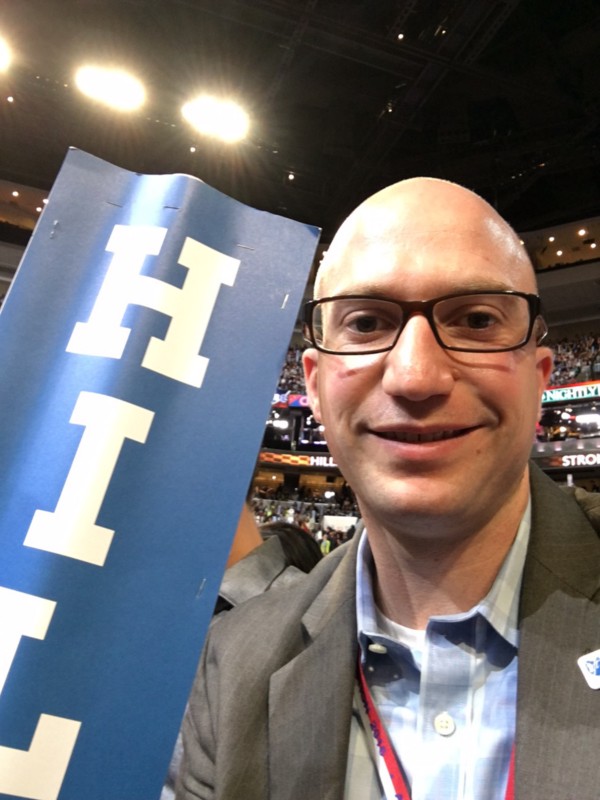September 2016
On the train heading to Philadelphia for the Democratic National Convention (DNC), I could not help but think of the miles of parallel rails that were below my feet. These rails rest permanently in place and will never cross. These parallel rails are a sad symbol of our country—a divided one. Red and blue. Black and white. Love and hate. Rich and poor. As a party we found ourselves thrust into that divide with leaked emails and further alienation from Bernie Sanders supporters. The divide was on display Monday evening in the convention hall. Speakers were booed and chants from the respective camps competed for attention and validation. I was truly worried about our cause and the threat of a Donald Trump presidency. Then First Lady Michelle Obama took the stage. She taught us, like she taught her daughters, that in the presence of a bully, “When they go low, we go high.” She talked about the symbolism of living in a house built by slaves. Her best line of the night, one that did not garner a lot of attention, was, “In this election, and in every election, it is about who will have the power to shape our children for the next four or eight years of their lives.” As educators we benefit, and sometimes suffer, from such decisions. This also speaks directly to our cause as members of the AFT—a cause that all, no matter their political beliefs, can rally around. This election is about more than Hillary Clinton and the Democratic party. It’s an election about what kind of country we want to leave for our children and youth. We work on the front lines of the future. The choices we make at the ballot box have a direct relationship with how we help build that future as educators. I was touched by Michelle’s remarks and I do not think we have seen the last of her as a public servant. Dovetailing the theme of “Stronger Together” was the echo of labor. Many of the speakers talked about the need to organize, a $15 minimum wage, wealth inequality and paid family leave—all ideas that were clearly absent from the RNC. Narrative is a powerful force in our lives, especially as we try to communicate the daily human moments we experience. This convention did not fall short, as we heard many stories about Hillary Clinton, all told by others. President Obama reminded us of her work with children. President Clinton disclosed the story of when and how they met. The delegation of women Democratic U.S. senators all told anecdotes and stories of how Hillary has influenced and mentored them. These narratives could not be told by Hillary Clinton alone—they had to be told by others. She’s clearly uncomfortable in the limelight and may not excite us with such narratives but her love and passion for our country is indisputable. I believe she brought us together, and it’s our responsibility to continue to tell her story. Finally, I learned something special this week. For the first time in my life, I heard the City of Philadelphia referenced as the "City of Brotherly Love" as well as the "City of Sisterly Affection"—an appropriate phrase for a city that invited us to help create history in electing the first female presidential candidate: Hillary Rodham Clinton. |

